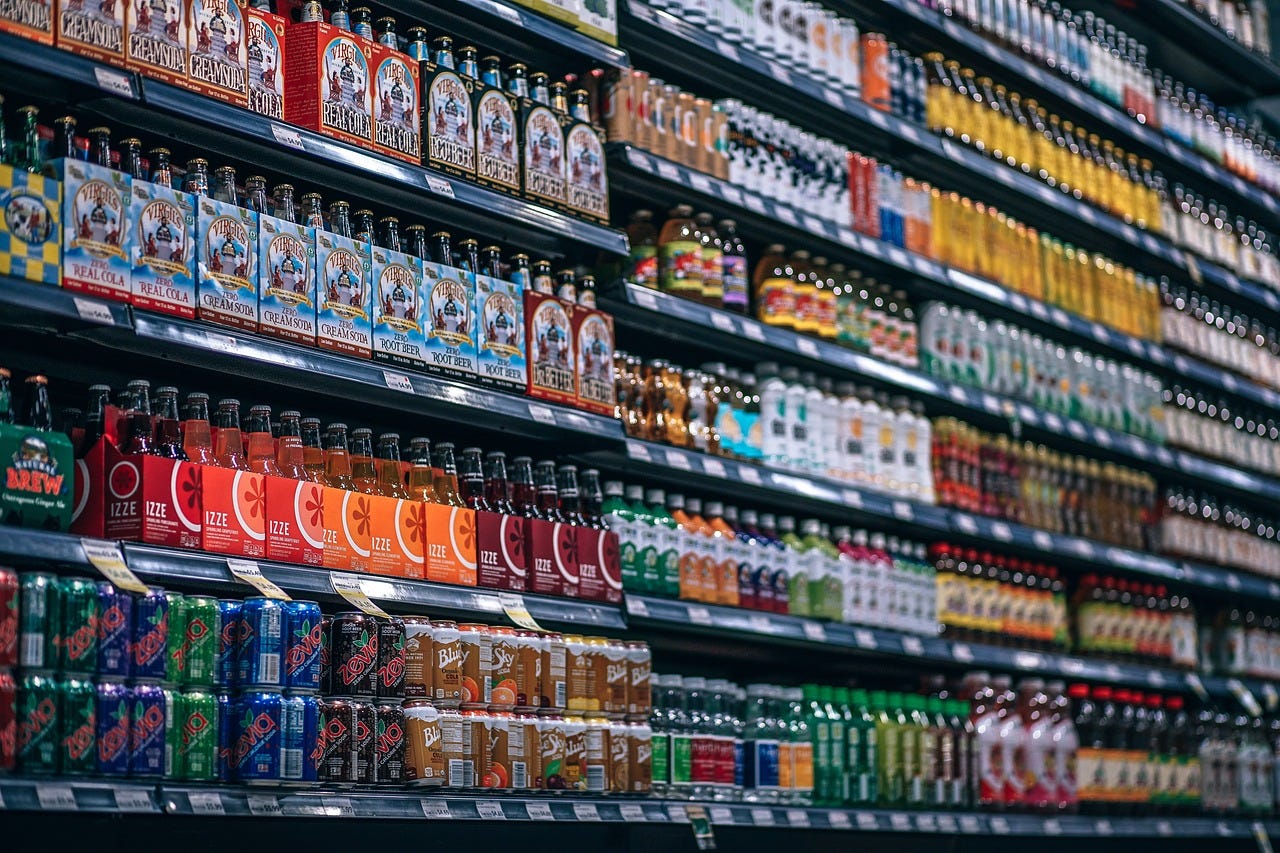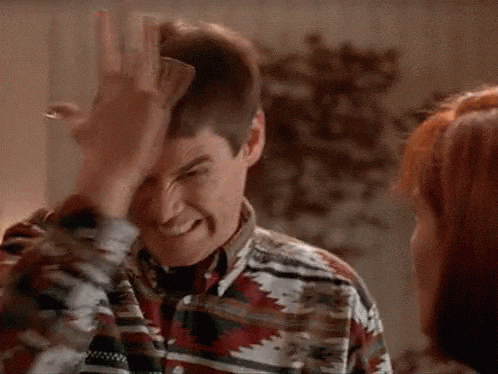👋 👋 👋 Welcome to recent subscribers: paul, janel, logan, deb, dorise, duncan, and ellen. I’m so glad you joined us; thank you!
We were a society dying with too much choice. ~ Aunt Lydia, The Handmaid’s Tale
We’ve all heard the expression “less is more,” a quote attributed to Ludwig Mies van der Rohe. A German-American architect and interior designer, he is regarded as a pioneer of modern architecture.
This concept of minimalism highlights the idea that simplicity and restraint often have a more powerful impact than excessive ornamentation or complexity.
(Tell that to my grandma, who had more tchotchkes than a tchotchke store. By the time she finished dusting them, it was probably time to start all over again!)
When searching for a photo of ‘many items,’ I settled on the one above. Then I Googled ‘how many beverages in the US.’
The Department of Agriculture estimates over 500 types, divided into various categories. That’s a lot of options, especially in third-world countries where clean, safe water is the only option and often hard to come by.
America is (sadly) known for overconsumption, a significant problem today. We consume a disproportionate amount of resources compared to other countries, negatively impacting the environment, public health, and the economy.
But, hey, freedom of choice is a hallmark of a free society, right?
(Well, that depends on which political party is in charge and what the subject is.)
I know our excesses here in the States, but it became even more apparent after visiting Italy. There are always exceptions, but most houses, apartments, cars, and even people were much smaller!
Overchoice (aka choice overload, choice paralysis, the paradox of choice) refers to the paradoxical phenomenon that choosing between many options can harm decision-making processes. Alvin Toffler first introduced the term in his 1970 book Future Shock.
So, how DO people view their choices?
Most people prefer more options over too few, but what’s the ‘sweet spot’ regarding how many?
The research varies. Some say 2 - 3, while others believe 8 - 15. The variation depends on the specific products and target audience. Five alternatives seem to be a popular number; enough, but not too many.
Types of Consumers
The Nobel Prize-winning economist Herbert Simon divided buyers into satisficers and maximizers.
Satisficers (Satisfy + Suffice) - His theory of bounded rationality refers to the concept that human decision-making isn’t perfectly rational. This is due to limitations in cognitive ability, information availability, and time constraints, leading to people making ‘good enough’ choices rather than seeking the absolute best option. Satisficers have an internal threshold that dictates once they find something that meets their needs, they choose it.
Maximizers - These folks must evaluate every option. In many cases, it’s impossible to comprehend all the information on all the options because there’s so much to cover. This group tends to have more regret over their decisions than satisficers.
I’m a satisficer who is often heard saying (with disgust), “There are too many choices!” I recall trying to choose paint colors and feeling staggered when I looked at the available selection.

My son, on the other hand, is a maximizer. I remember calling my daughter-in-law for a recipe, and they happened to be out shopping. She told me he was trying to pick out underwear, so she’d get back to me with the recipe in about three weeks. 🤣
Why Overwhelm Occurs
We become inundated due to the following:
So many similar options
Potential outcomes of our decisions
Risks involved with making the wrong choice
Researching and reviewing so many alternatives
The time and energy involved with decision-making
Potential Consequences
Decision Paralysis - Choosing between so many possibilities can be daunting, frequently causing people to abandon the process altogether.
Disappointment - Research shows that an abundance of items causes people to be less satisfied with their final decision. They second-guess themselves when more is available rather than less.
Self-blame - If we’re even slightly dissatisfied with our choice, we’ll be convinced it was wrong. (I’m such an idiot!)
How to Avoid Choice Overload
It’s important to set parameters before beginning your search:
Distinguish Needs vs. Wants - There’s a difference!
Budget - Buy within your means (without incurring further debt via interest fees that you may regret later.)
Desired Features - Decide which bells and whistles you need and can afford.
Mileage/Location - Consider the ease and extra expense of obtaining the product.
Online Research/Reviews - This is a rabbit hole where you can get lost. Set a time limit and search only credible sources. Reviews can be biased and uninformed, so consider that, as well.
Avoid the “all or nothing” mindset - This occurs when too much emphasis is placed on minor details or hypothetical situations regarding the impending choice. Most decisions aren’t permanent, so regardless of the outcome, you observe, change, and learn from it.
Intuition - Our bodies can tell us things our minds don’t necessarily want to hear. Give yourself time to think about it, then go with your gut.
Perhaps we’d be wise to adopt the Swedish belief of lagom, which means “just the right amount.” It can be translated as ‘in moderation,’ ‘in balance,’ and ‘ideal.’
Words like sufficient and average suggest some degree of abstinence, scarcity, or failure, whereas lagom connotates appropriate but not necessarily perfection.
Which we know doesn’t exist, anyway! 😉
✅ I enjoyed researching and writing this article and learned some things. I hope you did, too.
✅ Please respond to the poll below. I’m curious to see which is the more ‘popular’ category.
THANK YOU for reading Life Matters!
Subscribe to receive weekly posts:
If you enjoyed the post, please Like/ Comment / or Share:
Life Matters is a reader-sponsored publication (No ads or affiliate links). Please consider supporting my work with a one-time tip or upgrade to the paid membership for:
Sources:
https://www.psychologytoday.com/us/blog/stretching-theory/201810/too-much-choice
https://www.business.com/articles/the-psychology-of-choice-and-how-your-startup-can-leverage-it/
https://en.wikipedia.org/wiki/Lagom
https://news.uwgb.edu/phlash/mediacoverage/04/09/choice-overload-why-is-less-considered-more/
















Dear Ms. Writer,
As an Italian by birth I have always been a bit uncomfortable with the culture of expansive consumerism that we have embraced in North America. I like the Swedish concept of "lagom," of moderation, that you cite in your article. It also aligns with principles of Buddhism and other philosophies.
As consumers our behavior can drive the type of products and services that providers offer. With a little bit of awareness we can make conscious choices that can make us less rapacious and more inspired.
I enjoyed your article. Thanks!